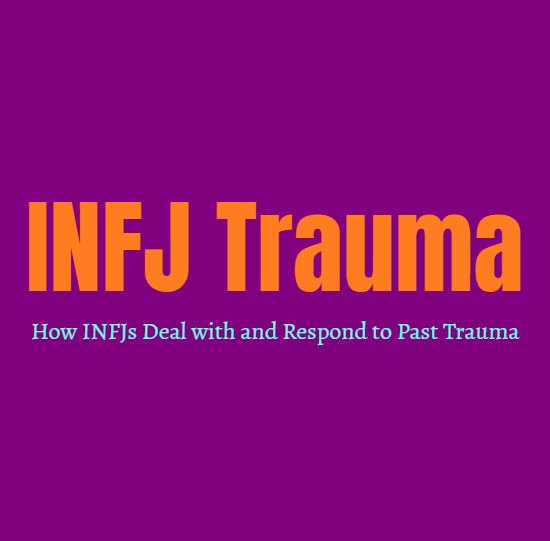INFJ Trauma: How INFJs Deal with and Respond to Past Trauma
When it comes to experiencing trauma, everyone has their own ways of handling and coping with what they go through. Of course, it often requires certain help from others, and serious trauma can also require therapy to find tools and ways to move through it. There are so many different types of trauma. Some happen so subtly that we don’t even realize we have endured a truly traumatic experience. It can be difficult to process, especially when you are still involved in the trauma that brings you down. This can affect someone’s behavior long-term and make certain personality types behave in ways that don’t seem to fit who they normally are. This is why it is important to understand the different ways that trauma can change someone or alter their behavior.
When it comes to experiencing trauma, this can certainly alter the behavior of an INFJ and cause them to appear different from their norm. INFJs can certainly bottle up this trauma since they have a tendency to bury negative feelings. They struggle to fully process these instances and can try to push forward as if nothing has even happened. INFJs don’t like feeling like they are a burden and can even experience immense guilt from their trauma. This is why it can be hard for them to recognize when something is truly wrong, and they will want to cover this up with distractions and other intentions. INFJs who spend their lives not dealing with their trauma can certainly become more toxic versions of the type, which is why it is important to understand the difference. Having gone through something like this, the INFJ might not behave like themselves, especially if they do not have the means of seeking help and bettering their situation.
INFJ Childhood Trauma
INFJs who have endured childhood trauma can struggle to process or move on from this. They likely hold onto those feelings and will blame themselves when things go wrong. It can also cause the INFJ to fear being abandoned, so they continue to pretend they don’t have this trauma on their chest. For the INFJ child who has gone through something traumatic, it often becomes easier to bury and forget that pain. They repress those feelings and attempt to override them, which can cause them to fester and hurt them even more. The INFJ child can appear like an “old soul,” and this makes it easier for people to forget that they are actually still a child. They need to be cared for and have people who will help them express those emotions and feel safe doing so.
How Trauma Changes The INFJ
The INFJ who has been through trauma can be somewhat toxic regarding relationships. They are likely to have a hard time with abandonment issues and don’t want to lose the people they love. This type of INFJ might latch onto people who understand and appreciate them, not wanting to lose what they have found in this person. They can show toxic behaviors towards them, trying to find any way possible to keep that person in their lives. This is not something that a healthy INFJ will do or express, and so their trauma likely causes their more manipulative talents to express themselves. The INFJ doesn’t do this to be cruel. They just feel a sense of pain and need and want to keep that person in their lives in order to bring them comfort. Since they haven’t found a way to process their trauma, they often don’t realize what makes them feel uneasy just being with themselves.
The INFJ who has experienced trauma can also find themselves in their shadow, which makes them much more reckless. Instead of trusting in their intuition, this INFJ will rely on things that feel good in the moment. They seek out ways to reward themselves, not really thinking about what will happen in the future. They aren’t as good at seeing around the corner and figuring out how to accomplish their goals and improve their lives. Instead, they focus on things that feel good and might even struggle to keep track of their own mental and physical health in the process.
INFJ Coping with Trauma
INFJs can often have a go-to response of burying negative emotions and seeking out ways to help others instead. They don’t find it easy to really process this pain since spending too much time on themselves can feel selfish. INFJs don’t like forcing themselves to be the center of attention, and vulnerability can actually be frightening for them. INFJs who have endured trauma can start to feel like they aren’t good enough and will attempt to find ways to fit into some sort of perfect image. The best way for the INFJ to cope with their trauma is to take note of it and to stop drawing towards people who allow them to abandon their own needs. Their fear of abandonment is likely to worsen because of this trauma, so the idea of sharing it with someone is frightening. INFJs need to be okay with accepting help, both from their loved ones and from a professional. Sometimes having that outside perspective can give them a sense of not being so alone and recognizing that they deserve to take time for themselves. Putting their needs first is not bad. It even helps them become more compassionate and rewarding friends and loved ones. For the INFJ, coping with trauma can take time, and they need space to themselves, or else they become too fixated on helping those around them. Having someone who has been through something similar (especially if it’s another INFJ) can really help guide the INFJ through the process and make them feel like they are not strange or alone.
This Post is Brought To You By BetterHelp
